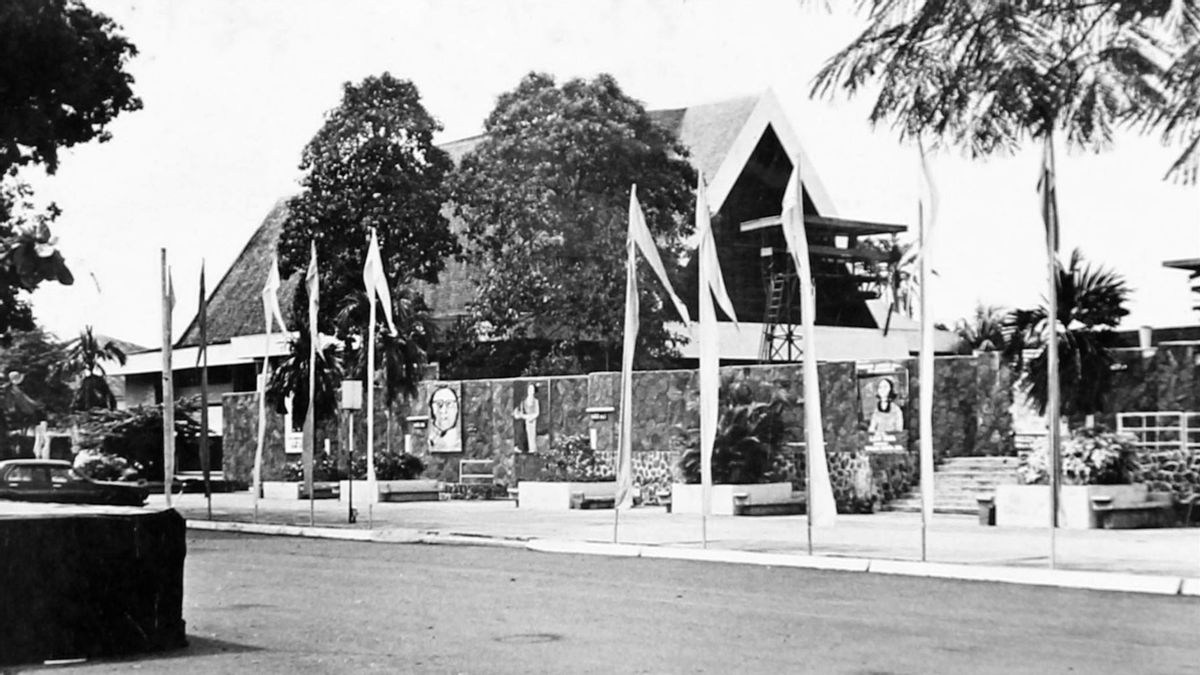JAKARTA History today, 54 years ago, November 10, 1968, the Governor of DKI Jakarta, Ali Sadikin inaugurated the art center complex: Taman Ismail Marzuki (TIM). The name was given by Ali to commemorate the contribution of Betawi figure from Kwitang, Ismail Marzuki.
Ismail proved that breaking the shackles of colonialism was not only with weapons, but with music. Therefore, the TIM, which is located in Central Jakarta, is expected to be a 'home' for Jakarta artists in their work. Like Ismail Marzuki's spirit.
Ismail Marzuki's life journey is surrounded by luck. He was born into the family he was in. His father was able to support Ismail in many ways. He was able to send him to school and support his son's hobby of music. Even though at that time the bumiputras were able to access schools. play music especially.
High musical instruments are the main obstacle. However, the high price did not discourage Ismail's father. He is happy to work hard to buy various musical instruments for his son. From guitar to saxophone. Ulam's beloved pinnacle arrives. Ismail replied by pursuing the world of music until he was proficient.
Ismail Marzuki's seriousness in bringing results. His musical talent has a lot to look at. Instead of thinking about his ego to just be famous, Ismail prefers to fight to help his people to escape the shackles of Dutch colonialism, then Japan. All kinds of colonialism on earth must end, he thought.
He also composed many songs of struggle. Mainly during the Japanese colonial period. Everything is to burn the spirit of the bumiputras to realize Indonesia's dream of independence. From the songisikan Tanah Air to the Gagah Officers.
In fact, during the revolution, he was reluctant to work for the Netherlands under the banner of the Dutch East Indies Civil Government (NICA). He decided that it would be better poverty than working with the invaders.
When the British soldier returned, Radio Republic of Indonesia (RRI) Jakarta fell into NICA's hands. The radio station in West Gambir was fitted with a large brand: ROIO (Radio Omroep In Overgangstijd). RRI's office moved to Solo. Ismail didn't want to work for NICA. The Four Sekawan quartet was dissolved and Ismail also opened an English course at his home. His wife, Eulis Zuraudah, faithfully helped make a living. He sells gado-gado, fried noodles, salty.
The Government Information Service (RVD: Regerings Voorlichtings Dienst) sent an envoy asking Ismail to work again with a big salary and a new car. However, Ismail is not tempted. Ismail does not hate Dutch people and language. What he hates is the colonial government. In his daily association with his friends he still speaks Dutch," said Ahmad Narut in the book Ketoprak Betawi (2000).
Ismail Marzuki's services are eternal. He is remembered for every Indonesian sanubari. the song continues to play and motivates young people to fight for the nation and state. That spirit was later adopted by Ali Sadikin. He wanted to build an art center complex according to the spirit of Ismail Marzuki.
He also gave the name of the art center complex Taman Ismail Marzuki (TIM). The TIM was inaugurated by Ali Sadikin on November 10, 1968. The man who is familiarly called Bang Ali wants Jakarta artists to have a new forum for work after the Senen area.
This art center complex, which was later named Taman Ismail Marzuki (TIM), was inaugurated by the Governor of DKI Jakarta Ali Sadikin, 10 November 1968. With the autonomy given by the DKI Jakarta Government, TIM actually appeared as an important center of art, both traditional and contemporary arts, whose positive impact was not only for writers in Jakarta, but also in various regions in Indonesia.
In the 10 years since the founding of TIM, various arts branches such as getting the right place to develop themselves. Artists enjoyed his heyday and freedom at the art complex. Especially in the field of literature, various experimental dramas were staged there. Various discussions, seminars, seminars, lectures, literary performances, and meetings between intersistrawans, continue to take place regularly which allows Indonesian literature to develop very lively," said Marwati Djoened Poesponegoro in the book Indonesian National History Volume VI (2008).
The English, Chinese, Japanese, Arabic, and French versions are automatically generated by the AI. So there may still be inaccuracies in translating, please always see Indonesian as our main language. (system supported by DigitalSiber.id)










